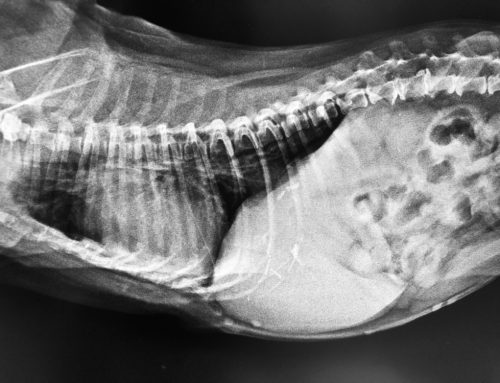When you see your pet every day, you are less likely to notice small, gradual changes that could indicate a medical issue. Pets in the beginning stages of chronic diseases often show few or no outward signs, and you can easily consider them perfectly healthy. But, if you wait until clinical illness signs are visible, the disease will be more difficult to treat and could shorten your four-legged friend’s life.
Regular wellness screenings are powerful tools that help our Billings Animal Family Hospital team identify aging changes and early chronic diseases before they snowball into larger, more serious problems. We explain the components we may recommend at your pet’s annual wellness visit and why they are important.
#1: Wellness examination
The physical examination portion of your pet’s wellness visit can give us valuable information about their health. Our skilled veterinarians will check your pet from head to tail, paying close attention to the following:
- Skin and ears — We check for parasites, such as fleas or mange mites, and common skin conditions, such as infections or allergic inflammation.
- Eyes — Cataracts, lens changes, and retinal diseases, which are common with age, can affect your pet’s vision and may indicate a systemic problem.
- Mouth — Dental disease affects almost all pets older than 3 years and may decrease quality of life if left untreated. We may recommend a dental procedure if we find tooth abnormalities.
- Heart and lungs — Heart murmurs are common changes in aging pets that can indicate heart disease. We may refer your pet to a cardiologist if we note a new heart murmur.
- Abdomen — A physical exam can reveal fluid, enlarged organs, or lumps in your pet’s abdomen, which would prompt our team to order additional tests.
- Weight — Around 50% of pets are overweight, which can put excess stress on their joints and increase their risk for certain diseases.
#2: Parasite screening tests
Parasites are everywhere in the environment, and while puppies and kittens are most at risk, adults can also be easily exposed. Intestinal parasites are common among social pets and pets who frequently venture outdoors, while mosquitoes can transmit heartworms to any pet, indoors and out. To identify and treat infections before they cause complications, we recommend the following tests:
- Fecal floatation — We send a small stool sample to a laboratory to look for intestinal parasite eggs.
- Heartworm test — A blood sample can identify heartworm infection and, in some cases, may also be used to screen for common tick-borne diseases. Heartworm disease shows no symptoms for months or sometimes years, but can be deadly.
#3: Wellness blood testing
Routine wellness blood testing serves several purposes and is a valuable screening tool for pets of all ages. For young and presumably healthy pets, blood tests can provide a baseline, so our team knows their normal and can track future changes that could indicate a problem. For older pets, blood tests can identify diseases before clinical signs appear, when they are easiest to treat. Waiting until your pet is sick could mean their disease will be more difficult to control, which could impact their longevity or quality of life.
The most common conditions we diagnose or suspect based on routine screening blood work include:
- Diabetes
- Kidney disease
- Liver disease
- Thyroid disease
- Adrenal disorders
- Infections
#4: Wellness urine testing

A urinalysis complements blood tests by helping to assess kidney function and look for abnormal substances, such as protein. The kidneys should not allow protein in the urine, so protein presence can indicate a larger, systemic problem, such as high blood pressure or kidney dysfunction. A routine urinalysis also helps us diagnose or monitor bladder conditions, which are common in cats. Older female dogs and cats can develop silent bladder infections that may ascend to their kidneys if not detected and treated promptly.
Why annual wellness screening matters
You may wonder whether these annual wellness screening tests are worth the extra money, and if your pet’s results are normal year after year, you likely think they are no longer necessary. But, because pets do not live as long as people, they age faster—which means health changes can occur quickly. Sometimes these changes take only weeks or months. The best way to catch changes early is to perform annual wellness screening tests, because early diagnosis can improve the prognosis and decrease the discomfort and expense associated with long-term treatments.
Wellness screening tests are best performed each year, so we can monitor your pet for subtle trends over time. Contact the Billings Animal Family Hospital to schedule your pet’s next wellness examination and screening tests.








Leave A Comment